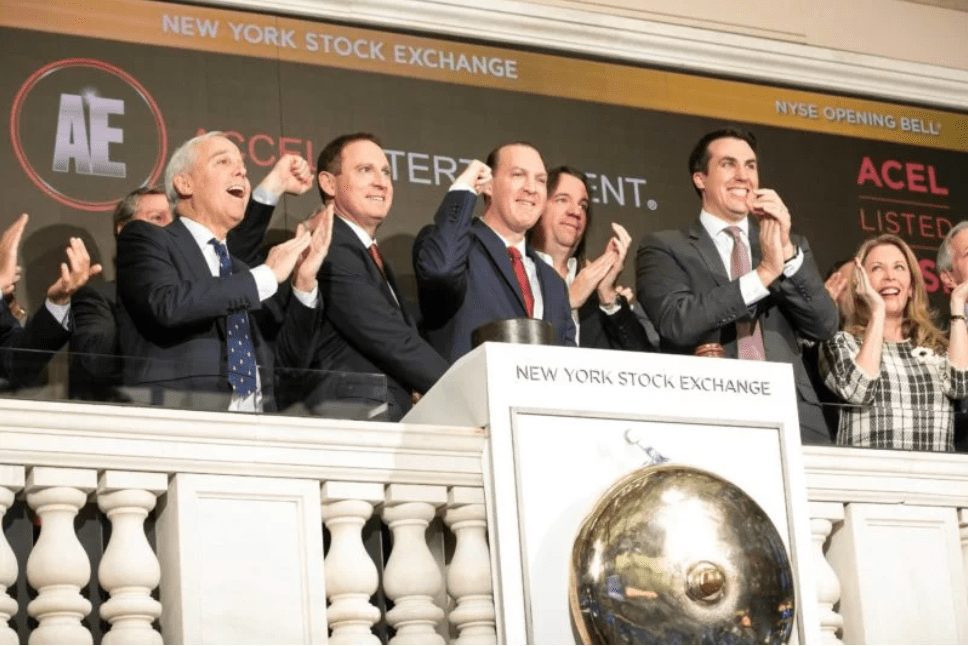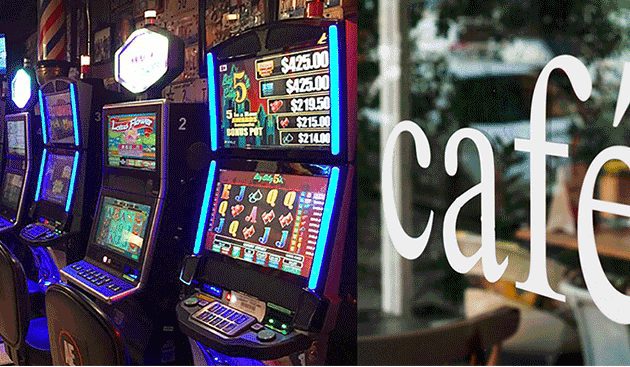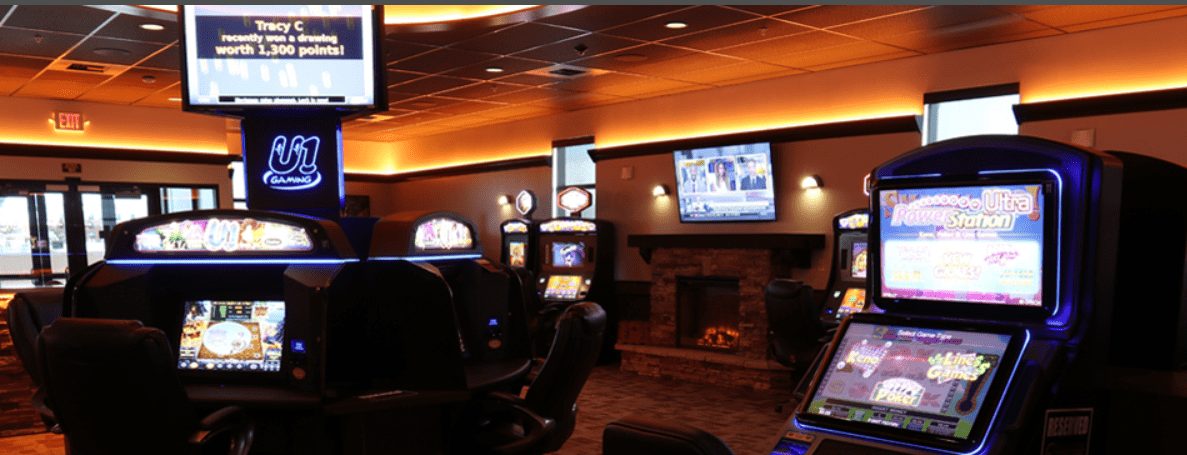The planned acquisition of rival slot route operator Century Gaming gives Accel Entertainment a foothold in Nevada and Montana, two of the nation’s legacy distributed gaming markets.
But the deal could spur Illinois-based Accel’s move into other states with slot route businesses and potential markets where legalizing machine gambling is under consideration by lawmakers.
In a deal announced March 2, Accel Entertainment said it would pay $140 million to acquire Century Gaming, which operates some 8,500 slot machine terminals in more than 900 locations in Nevada and Montana. The transaction is expected to close by the end of the year.
Accel CEO Andy Rubenstein didn’t provide much insight on plans for either state when the agreement was announced, or during the company’s fourth-quarter conference call on Monday.
He was bullish, however, on Century’s proprietary technology, including software designer Grand Vision, which is licensed to sell gaming terminals in four states, and Gamblers Bonus, a player loyalty program designed exclusively for route operations. He suggested the products could be utilized by Accel in Illinois.
“While play rewards have not yet been approved in the Illinois market, we believe this technology, combined with our own expertise, will provide a powerful and cost-effective platform to launch our own product when and if appropriate,” Rubenstein said during the conference call.
Eight states – Illinois, except for the Chicago area; Louisiana; Montana; Nevada; Oregon; South Dakota; West Virginia, and Pennsylvania – allow legal video gaming terminals in non-casino businesses, including restaurants, bars, taverns, convenience stores, truck stops, and other locations that sell alcohol.
Georgia has a non-traditional market where gas stations and convenience stores operate coin-operated amusement machines that are licensed by the Georgia Lottery but don’t pay out cash. Customers win lottery tickets or store credits.
Among the states considering slot machine routes are Missouri, Mississippi, and Indiana.
Rubenstein told analysts several states have “legislation percolating.” However, he didn’t want to call it “a pipeline.”
Slot machine routes, where an operator manages from 5 to 15 gaming terminals for either a space fee or a revenue share with the business owner, have attracted the interest of state lawmakers who view gaming expansion as a method to repair budget deficits brought on by COVID-19 shutdowns that reduced tax dollars.
Macquarie Securities gaming analyst Jordan Bender said slot routes are often opposed by owners of traditional casinos because the games tend to cannibalize pre-existing gaming operations.
Nevada, Louisiana and Montana have long had slot machine routes, but Bender said “fragmentation” muted the markets. Nevada and Louisiana, he said, “have largely gone unnoticed, given slow growth rates and limited cannibalization of traditional casinos.”
Illinois changed the game when it launched slot routes in 2012. Revenues from the state’s 10 commercial casinos peaked at $1.98 billion in 2007 but have declined steadily. Illinois’ more than 37,000 video gaming terminals now generate between 60% and 70% of the state’s total gaming revenues, “a sign of cannibalization less than 10 years after legalization,” Bender noted.
“Illinois has produced a model that has shown to be successful, adding tailwinds to the idea of future expansion,” Bender said. “Overall, there are enough opportunities across the U.S., and we expect to see states begin to legalize distributed gaming.”
Penn National Gaming and Boyd Gaming Corp., which have casinos in Illinois, own small route operations in the state, a “defensive and curious point of view,” Bender noted.
“We believe casino operators will continue to lobby against the route impact to land-based operations, slightly delaying the broad acceptance,” he said.
Accel changes the game
Accel, one of the first gaming companies to go public through a special purpose acquisition company (SPAC) deal in 2019, has expanded quickly. At the end of 2020, the company had 12,247 video gaming terminals in Illinois, almost 33% of the state’s total market. Last year, Accel acquired a small Northern Illinois operator to increase its presence.
Analysts expect Accel to look at similar purchases in other states.
“This is a significant deal for Accel, as it marks meaningful geographic expansion and diversification,” said Union Gaming Group analyst John DeCree. “Not only does the transaction provide geographic diversity, but it also proves the company’s ability and desire to expand outside of Illinois in a meaningful way.
Century is headquartered in Montana and entered Nevada in 2004 after buying United Coin Machine. The company is the largest slot machine route operator in Montana with some 6,000 games.
In Nevada, which had 2,000 restricted gaming locations operating 17,510 slot machines at the end of 2020, Century is the solid No. 2 operator with roughly 2,500 games in 475 businesses.
But the company significantly trails Las Vegas-based Golden Entertainment, which controlled roughly 10,800 slot machines – more than 61% of Nevada’s total restricted-gaming market – at the end of 2020.
Golden Entertainment CEO Blake Sartini was dismissive of Century’s competition for his company, which also owns 66 branded taverns in Nevada with 1,000 slot machines included in its restricted gaming portfolio.
“Century is not really a relevant business. So we’re comfortable with where we stand,” Sartini said during Golden’s fourth-quarter conference call when asked about the Accel transaction.
Century CEO Steve Arntzen and his management team will continue to operate the route business in both Nevada and Montana after the acquisition closes. In an interview, he declined to comment on Sartini’s remarks but said Accel’s investment and expertise will change the company’s game plan in both states.
“Accel’s sales and marketing are the company’s strengths. The teams are very focused,” Arntzen said. “Our team is operationally focused. Accel brings a fresh new approach to both markets.”
Arntzen said Montana has more than 16,000 route-operated slot machines, which means “there is a lot of potential for expansion.” He also expects the Nevada market to have growth opportunities as the state bounces back from its economic woes caused by COVID-19.
“We’re already making plans for the next calendar year. Accel wants to hit the ground running,” he said.
‘Distributed gaming is resilient’
Nevada’s restricted gaming market couldn’t avoid the economic hit from the pandemic. Bartop slot machines were turned off for 78 days during the state’s gaming industry shutdown, which ended on June 4. However, the games were turned off for parts of July and August inside standalone bars and bar-top areas in taverns and restaurants in seven counties in response to a surge in positive coronavirus cases.
Golden, the only publicly traded slot route operator in Nevada, said its total revenues in the segment declined 27% in 2020 to nearly $206.8 million, down from $285 million in 2019. The company’s distributed revenue decline in Montana was less than 1%.
Analysts are predicting a quick rebound.
“We expect that distributed gaming, which has proven to be the most resilient form of gaming through economic cycles, will see revenue return to normalized levels in mid-2021 given the hyper-local focus,” Bender said.
Nevada imposes taxes on restricted gaming locations through quarterly and annual fees per machine. It’s far different than casinos, which pay 6.75% monthly on taxable gaming revenue in excess of $134,000.
For the first five games, the quarterly fee paid to the state is $81 per machine. The locations pay $141 per quarter for each of the next 10 machines. Under the formula, the total annual tax for a location with 15 slot machines is $11,010.
Many other states tax the revenues produced by the games.
Howard Stutz is the executive editor of CDC Gaming. He can be reached at hstutz@cdcgaming.com. Follow @howardstutz on Twitter.








